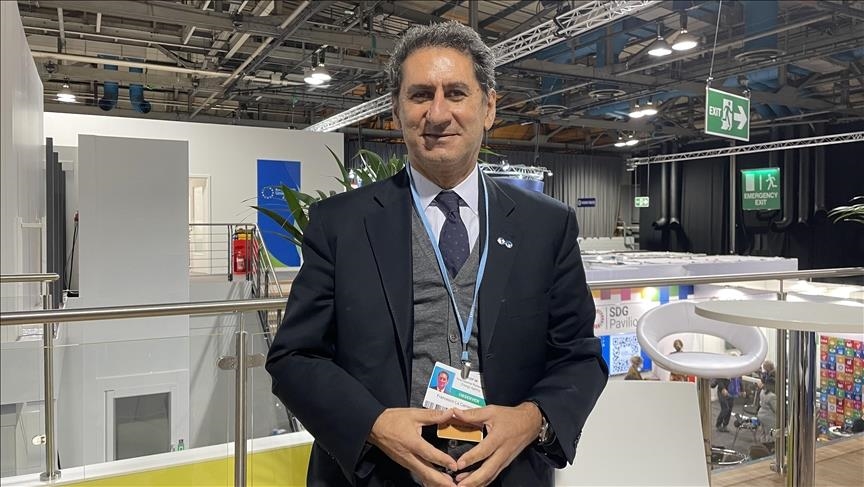BAKU, Azerbaijan
The global transition to 100% renewable energy is achievable, but not likely before 2050, according to Francesco La Camera, director-general of the International Renewable Energy Agency (IRENA).
Speaking to Anadolu at the COP29 UN Climate Change Conference in Baku, Azerbaijan, La Camera stressed the urgency need to reduce reliance on fossil fuels to limit global warming to 1.5C, as outlined by the Intergovernmental Panel on Climate Change (IPCC).
Underlining that transitioning entirely away from fossil fuels is possible, he said: “In our scenario, we don’t see 100% renewables by 2050 in line with the Paris Agreement.”
Highlighting recent progress, La Camera noted that renewable energy capacity hit a record 473 gigawatts last year, up 30% from the previous year.
He called this a positive indicator of global efforts toward sustainability yet not enough. “So the fact is we are breaking new records, but we are installing less than half of what is needed to be in line with our goals,” he said.
La Camera stressed the need for immediate action, citing the finite nature of the planet’s “carbon capacity” – the maximum amount of carbon the atmosphere can absorb. He warned that once exceeded, recovery could take decades or even centuries.
Pointing to renewables as a solution to climate resilience, he said increased renewable capacity can strengthen the world’s capability to resist extreme weather caused by climate change
He concluded with a call to action: “In the fight against climate change, the most important variable is time. The later we are, the less effective we will be.”

